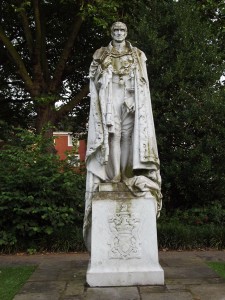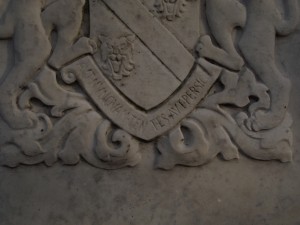Prof. Peter Kruschwitz is a Latin scholar. One of his current projects covers the Latin inscriptions of Reading.
Reading’s Phoenix College, situated on Christchurch Road, recently put up a new sign at their entrance which drew my attention to their Latin motto:
Ad astra per aspira.
At first, it seemed to me as though this was a mere mistake, a corruption of the well-known Latin motto Per aspera ad astra, ‘through hardship to the stars’ (or its alternative version per ardua ad astra, as used by the Royal Air Force).
Some further investigation into this rather curious motto, however, took me to the college’s webpages, where one finds the following statement:
“Ad Astra Per Aspira” in Latin means to aspire for the stars. Our school endeavours to help students reach up to their potential.
In other words, the college has adopted (and created?) the motto on purpose.
Now, there cannot be much dispute over the question as to whether or not the motto is in correct Latin: it is not. It is also rather obvious how this mistake will have occurred: the Latin for ‘hardship’ (lit. ‘hard things’), aspera, in its English pronunciation sounds just about close enough to aspira – so why not go all the way and change the spelling altogether, to produce the aspirational (if ungrammatical) claim?
Why then, one must ask, use a Latin motto, if one is not actually competent in that language? The answer is simple: Latin in a modern setting is a prestige language: ‘to aspire for the stars’ is a perfectly good motto, but stating the same thing in Latin lends the motto a whiff of dated venerability that can only come from a language that the majority of readers do not really understand. Moreover, it puts the school on par with other local schools that have Latin motti, such as the nearby Abbey School:
In aedificationem corporis Christi.
‘For the edifying of the body of Christ.’
Phoenix College, however, is not the only place that displays a faulty Latin inscription in Reading. There are at least two more examples, both rather prominent. First, the statue of Lord Rufus Isaacs at Eldon Square. It displays the honorand’s coat of arms on its pedestal:
The motto scroll reads as follows:
Aut nunquam tentes aut persicei.
This meaningless text is a corruption of the Latin motto aut nunquam tentes aut perfice (‘either do not attempt at all, or complete it to perfection’), and one can be reasonably certain that the sculptor, when the statue was produced some eighty years ago, misread the phrase perfice! in an early 20th century handwriting and replaced the f with an s and the exclamation mark with an –i.
Secondly, equally venerable, there is a beautiful stained glass window in the Lady Chapel of Reading Minster of St Mary the Virgin. The arms on display here are those of the Yates family, who is also otherwise represented in this church. The motto reads:
Per rege et patria.
This is an obvious corruption of the Latin for ‘For King and Country’, which should of course read pro rege et patria.
It may not be much of a consolation to any of the concerned, but mistakes in Latin inscriptions have a long tradition: the hundreds of thousands inscriptions that survive from Roman antiquity, written at a time when Latin was still in active, everyday use, are in fact full of mistakes, many of which deserving of the famous treatment that Brian receives from the centurion in Monty Python’s Life of Brian. One may smirk at the fact that even the Romans could not get their own language right in writing. But these ‘mistakes’ now help scholars of the Latin language to develop a rather better understanding of variation and change in Latin, trends that eventually led to the emergence of Romance languages.
It is always easy and tempting to mock those who make mistakes. But in actual fact, even the mistakes – such as that in the motto of Phoenix College – may be indicative of something, and in this particular case, of the desire to express something beautiful.
Peter Kruschwitz







